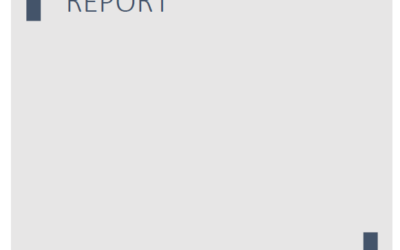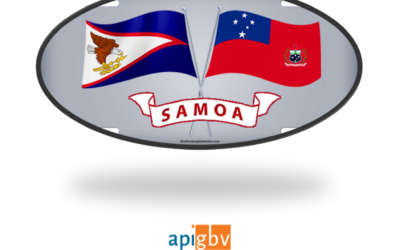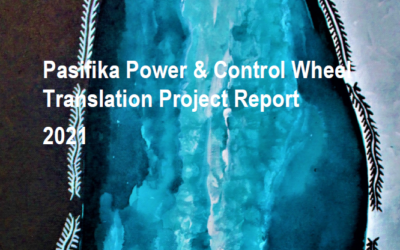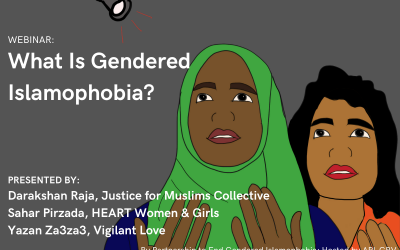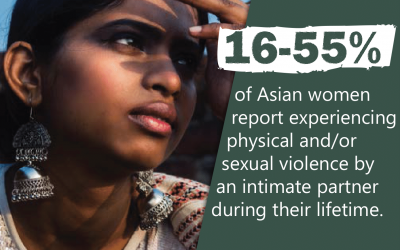Almost 70-80% of Korean immigrants in the U.S. reports that they attend church regularly. Korean American Family Services (KFAM) has encountered so many survivors whose faith play a very important role for their journey to healing. Because of this reason, KFAM has been working with the Korean faith community for about 8 years in order to make our community more welcoming to survivors and to train faith leaders to become supportive first responders. Through this webinar, KFAM will share our work with faith leaders, our strategy and the impact of our work.
Related Resources
Pacific Diaspora in the USA
This research report addresses the scarcity of data regarding Pacific Islander communities and presents research on the diaspora in the U.S. It seeks to understand who is the Pacific diaspora in the U.S., where they came from and where they are located; to examine the...
Samoa Community Project: Year One Report (2021-2022)
The Samoan Community Project builds on API-GBV’s Pasifika Power & Control Wheel Translation Project, which sought to adapt the well-used tool to Pasifika languages and cultural/community contexts. This report highlights the needs to unpack the Samoan words...
Pasifika Power & Control Wheel Translation Project, 2021
This project aimed to translate and develop educational resources and tools on GBV in indigenous Pasifika languages. The project aims to empower individuals, families, community-based and system responders, allied professionals, and the community-at-large with culturally responsive resources to address and prevent GBV in Pasifika communities. Resources include project report and glossaries and tools for Samoan, Chuukese, and Native Hawaiian communities.
What is Gendered Islamophobia? 2021
Building upon a history of shared values and intersecting work, the Partnership to End Gendered Islamophobia brings together HEART, Justice for Muslims Collective and Vigilant Love to build analysis, tools and power to dismantle Gendered Islamophobia. This workshop is specifically tailored towards practitioners in the field of gender-based violence and gender justice. We focus on ways practitioners can better understand how gendered Islamophobia shows up in their work, and ways to respond in holistic ways. The workshop includes a focus on the intersection of gendered Islamophobia, gender-based violence and reproductive justice. The workshop emphasizes the invisibility of state violence in understanding gender-based violence and particularly the implications of the War on Terror and Islamophobia for Muslim survivors of gender-based violence. Moreover, this workshop includes discussions upon intra-community solidarity and what can be done within broader Asian American spaces to address gendered Islamophobia.
How COVID-19 and Systemic Responses Are Impacting Asian and Pacific Islander Survivors of Domestic Violence and Sexual Assault
This advisory explains how the COVID-19 outbreak is impacting Asian and Pacific Islander (API) survivors of domestic violence and sexual assault, and describes policies enacted to address the pandemic including the CARES Act, and API and immigrant survivors’ eligibility for the programs and services offered in the legislation, as well as the implications of utilizing the services. The Advisory also discusses the effect of systematic responses to the COVID-19 crisis and the unique issues that API survivors face that systems must account for to support survivor safety during the pandemic.
Facts & Stats Report: Domestic Violence in Asian and Pacific Islander Homes, 2020
Statistics from published and unpublished studies on prevalence of abuse, domestic violence, types of abuse, attitudes towards domestic violence, help seeking attitudes and experiences, service utilization, health and mental health consequences, exposure to family violence in childhood, and domestic violence related homicides.
Faithful Allies: Working with Christian Leaders
This tipsheet 1-pager, developed by Korean American Family Services (KFAM) describes some suggested practices for working with faith leaders on DV/SV response and prevention.
Trauma-Informed Care for AAPI Survivors: 3-Part Webinar Series
Presented in collaboration with four AAPI community organizations and shelters, this webinar series explores the impacts of trauma on AAPI survivors and communities. Presenters share insight about working with survivors in shelter and through immigration and legal cases; and discuss best practices for providing culturally-specific, trauma-informed services, particularly within the context of COVID-19.

Presented by:
Sunhee Kim, Korean American Family Services (KFAM)
Hosted by API-GBV
September 2020
For more on working with Korean Christian faith leaders, see the accompanying tipsheet.
